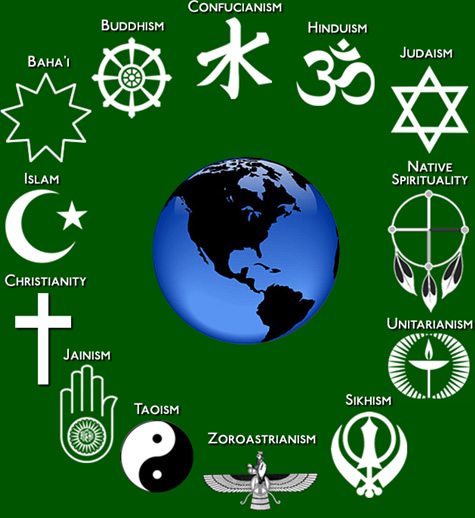 Hundreds of students from around the nation spent this past weekend at Princeton University for the 5th Annual Coming Together Interfaith Conference (CT5). The conference promoted “the importance of inter-religious engagement and understanding at American universities” and provided the student participants opportunities to “discuss how interfaith councils are formed, the role they have on campus and ideas for meaningful programs that promote unity and peace.” Attendees at this “student organized event” based primarily on “peer-to-peer learning” included “delegations from Stanford, Yale, University of Chicago, City College of New York, University of Southern California, University of Pennsylvania, Macalester, Texas Christian University, Rice University, Oberlin College, Columbia University, the Massachusetts Institute of Technology, and 25 other schools.”
Hundreds of students from around the nation spent this past weekend at Princeton University for the 5th Annual Coming Together Interfaith Conference (CT5). The conference promoted “the importance of inter-religious engagement and understanding at American universities” and provided the student participants opportunities to “discuss how interfaith councils are formed, the role they have on campus and ideas for meaningful programs that promote unity and peace.” Attendees at this “student organized event” based primarily on “peer-to-peer learning” included “delegations from Stanford, Yale, University of Chicago, City College of New York, University of Southern California, University of Pennsylvania, Macalester, Texas Christian University, Rice University, Oberlin College, Columbia University, the Massachusetts Institute of Technology, and 25 other schools.”
Qasim Rashid was among the CT5 attendees. As a part of his participation, he delivered a presentation on religious extremism. Rashid is an award winning member of the Muslim Writers Guild of America, a national spokesperson for the Ahmadiyya Muslim Community, and currently serves as President of the Richmond MKA USA Muslim Youth Association. Reflecting on his experience for the Huffington Post, he wrote: “A Muslim, a Christian, A Sikh, and a Hindu Walk into a College Dorm Room . . . and Discover World Peace. ” The intriguing article title is not misleading, but rather leads into a hopeful introduction:
So the story begins like this. Four students, an Ahmadi Muslim, a Protestant Christian, a Sikh and a Hindu are crammed into a tiny dorm room at Princeton University. Each comes out three days later, having discovered the solution for world peace. Yeah, seriously.
So What?
Rashid writes, “As a nation we have become so accustomed to letting people tell us what to believe, that we all too rarely seek knowledge ourselves.” We tend to fear and mis-characterize that which we do not know. This is unhealthy in all areas of life, but can be especially troubling in matters of religion.
While the results of the conference are not easily measured, Rashid’s summary provides rationale for it and other similar endeavors: “No one lost their faith, but everyone joined a powerful movement to fight back against the cancers of bigotry and extremism that are threatening our humanity.”
- How well do you know about religions other than your own? What have you done recently to learn more?
- How well do you know people who are adherents to religions different from your own? What have you done recently to engage in intentional interaction and dialogue?
- How do knowledge (increased religious literacy) and relational/experiential inter-religious interchange (face-to-face encounters with real practitioners) serve as a critical learning tools in gaining deeper understanding of and respect for other religious traditions? For living out the Greatest Commandment?
For further reading, consider Rabbi James Rudin’s recently released book: Christians & Jews – Faith to Faith: Tragic History, Promising Present, Fragile Future (2011). You can read my review of it here.